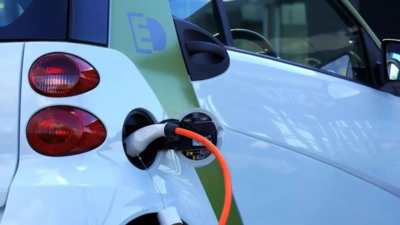Delhi, Maharashtra and Chandigarh have topped Niti Aayog’s inaugural India Electric Mobility Index (IEMI) 2024, emerging as frontrunners in the country’s transition to electric vehicles. The index evaluates the performance of all states and Union Territories across 16 indicators grouped under three broad themes: EV adoption, charging infrastructure readiness, and EV technology and innovation.According to the report, launched on Monday by Niti Aayog member Rajiv Gauba, Delhi and Maharashtra lead in transport electrification, while Haryana, Karnataka, Ladakh and Himachal Pradesh stand out in the area of charging infrastructure preparedness, PTI reported. In the domain of EV innovation, Delhi, Tamil Nadu, Maharashtra, Karnataka, Haryana and Telangana have been named as frontrunners.“The IEMI provides a transparent, comparative framework to assess progress across key themes such as electrification, infrastructure and innovation,” Gauba said at the launch of the IEMI dashboard and report.The index, the Aayog said, is intended to strengthen state-level coordination, encourage integrated planning, and foster cross-sectoral collaboration to help India meet its national electric mobility targets. By identifying both strengths and gaps, the index aims to help states align with central goals while addressing local needs more effectively.India’s electric mobility ecosystem has seen a rapid transformation over the last decade. The report noted that electric vehicles accounted for just 0.5% of total vehicle sales in 2018, which rose to 7.7% by 2024. As of June 2025, over 6.5 million EVs are operating on Indian roads.Charging infrastructure remains a key factor in enabling this transition. As of October 2024, India had installed 25,000 public EV charging stations, with Karnataka leading the country in terms of installations.The Aayog noted that 29 states and Union Territories have notified dedicated EV policies, with another four in the draft stage. These state-level policies are instrumental in driving localised action through targeted incentives, regulatory support and region-specific roadmaps aligned with national objectives.The report also highlighted that 2024 witnessed a significant surge in private EV adoption, with electric two-wheelers and cars reaching a 5.3% market share. Over 12 lakh EVs were registered across the country during the year.






